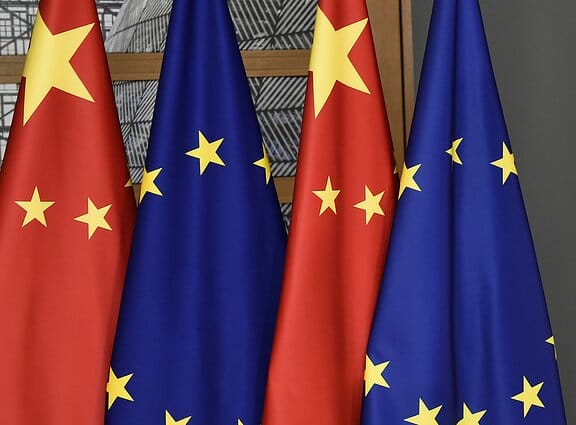EU-China Summit: Navigating the Complexities of Trade and Digital Policy
BRUSSELS — After a four-year hiatus, the EU-China summit is tentatively scheduled for December 7-8, according to an EU official. This announcement comes as EU Commissioner Thierry Breton makes a preparatory visit to China for the upcoming meeting. While these dates are the current target, they await formal confirmation. A senior

BRUSSELS — After a four-year hiatus, the EU-China summit is tentatively scheduled for December 7-8, according to an EU official. This announcement comes as EU Commissioner Thierry Breton makes a preparatory visit to China for the upcoming meeting.
While these dates are the current target, they await formal confirmation. A senior EU diplomat highlighted that the summit's specifics, to be hosted by China, are not yet completely finalized. These details come from sources who spoke on the condition of anonymity, as they are not authorized for official statements.
European Commission President Ursula von der Leyen, addressing EU ambassadors earlier this week, emphasized the need for a “clear-eyed” approach towards China's increasingly assertive global stance, especially in light of the impending summit. She will be joined by European Council President Charles Michel at the summit, with Chinese Premier Li Qiang expected to chair the event. Additionally, Chinese President Xi Jinping is slated to meet with the European leaders, as indicated by an EU official privy to the plans.
Commissioner Breton, during his visit, openly criticized China's rigid policies regarding its vast telecom market. He pointed out the significantly reduced market share of European 5G network equipment providers, now in single digits. Breton expressed concerns over the unclear criteria that led to the exclusion of companies like Ericsson and Nokia from bidding on 5G contracts in China.
This critique echoes the wider apprehensions of various European commissioners who have visited China in recent months. Vice Presidents Valdis Dombrovskis and Věra Jourová, responsible for trade and digital policy, have raised similar issues regarding limited access to the Chinese market. The EU's bilateral trade deficit in goods with China saw a substantial increase, nearing €400 billion last year.
The summit presents an opportunity for the EU to address these critical issues while navigating the complex political and economic landscape of its relationship with China. The discussions are expected to cover a broad range of topics, including trade imbalances, market access, and digital policy, as both entities seek to redefine and strengthen their economic ties in a rapidly evolving global context.




